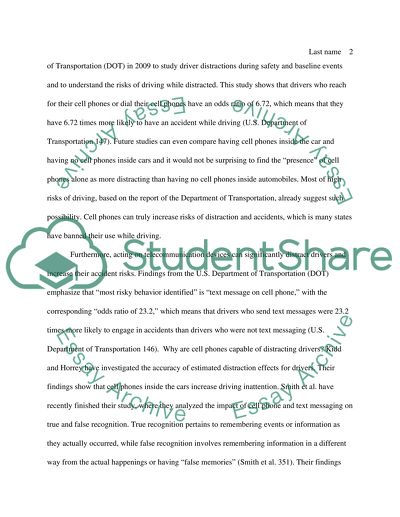Cite this document
(“Why People Drive Distracted Essay Example | Topics and Well Written Essays - 1000 words”, n.d.)
Why People Drive Distracted Essay Example | Topics and Well Written Essays - 1000 words. Retrieved from https://studentshare.org/sociology/1434970-why-people-drive-distracted
Why People Drive Distracted Essay Example | Topics and Well Written Essays - 1000 words. Retrieved from https://studentshare.org/sociology/1434970-why-people-drive-distracted
(Why People Drive Distracted Essay Example | Topics and Well Written Essays - 1000 Words)
Why People Drive Distracted Essay Example | Topics and Well Written Essays - 1000 Words. https://studentshare.org/sociology/1434970-why-people-drive-distracted.
Why People Drive Distracted Essay Example | Topics and Well Written Essays - 1000 Words. https://studentshare.org/sociology/1434970-why-people-drive-distracted.
“Why People Drive Distracted Essay Example | Topics and Well Written Essays - 1000 Words”, n.d. https://studentshare.org/sociology/1434970-why-people-drive-distracted.


